![]()
ATLANTA, GA – Jumpspark’s Strong Women Fellowship, an empowering educational cohort for Jewish teens in grades 9-12, has continued to grow in size and expand programming to feature a Teen Board leadership position for third year returning fellows to give oversight over the fellowship throughout the year, interest-based cohorts for increased community building among fellows, small group meetings using Moving Traditions’ Rosh Hodesh curriculum, and increased leadership responsibilities for second-year returning teens. The 68 fellows participating in 2020-21 represent 17 high schools and 14 synagogues from the Atlanta metro.
The Strong Women Fellowship, launched in fall 2018 with an initial cohort of 28 teens, provides unparalleled access to strong women leaders, thinkers and voices shaping their world. Each month fellows meet guest speakers, build relationships in small groups, and grapple with the issues facing young women. The program is funded by the Jewish Federation of Greater Atlanta, Jewish Women’s Fund of Atlanta, and the Jim Joseph Foundation.
After her experience in the fellowship last year, Sophie Kieffer said, “JumpSpark brought together an array of Jewish girls from across Atlanta with vastly different backgrounds, life experiences, and awareness of social issues. Our sessions taught us the skills to enter the world as college students, exposed us to the rich diversity of Jewish Atlanta, and heightened our awareness on the key social issues impacting our time.”
Monthly guests include local female Jewish professionals and leaders, as well as national leaders and influencers, that speak on relevant topics such as women in business, civic engagement, mental health, disability inclusion, and more. Guests this year include Stephanie Kaplan Lewis (co-founder, chief executive officer, and editor-in-chief of Her Campus), Lauren Berger (CEO & Founder of both CareerQueen.com and InternQueen.com), Caroline Rothstein (internationally touring and acclaimed writer, poet, and performer), Pamela Schuller (internationally known inclusion advocate), and more. For the full itinerary, visit https://jumpsparkatl.org/strong-jewish-women-speakers/.
New this year, JumpSpark has developed a Teen Leadership Board open to third year returning fellows to incorporate teen voice into every aspect of the fellowship. The Teen Board chose the speakers for the year and the topics to be discussed in the fellowship’s small groups. They will also give high-level feedback on the fellowship throughout the year and will continue to shape the fellowship’s growth and development.
The 2020-21 Teen Board includes:
Téa Barton
Emma Cohen
Lauren Cohn
Rachel Cohn
Sydney Fox
Tamar Guggenheim
Katie Hurwitz
Maya Laufer
Stella Mackler
Macy Mannheimer
Emma Nowitz
Lilah Presser
Zoe Siegel
Lili Stadler
Rene Walter
In addition, with the help of Rachel Alterman Wallack of VOX ATL, Atlanta’s home for uncensored teen publishing and self-expression, JumpSpark has reinvigorated a robust Peer Leader program for second year returning fellows offering leadership roles, tailored training and group facilitation resources, event planning experience, and resume-building skills and opportunities.
The 2020-21 Peer Leaders include:
Eva Beresin
Mollie Binderman
Rachel Binderman
Gabby Cope
Sarah Dowling
Alexa Freedman
Ruby Frohman
Julia Harris
Amelia Heller
Kayla Jacobs
Rebecca Kann
Phoebe Kaplan
Kira Mermelstein
Miriam Raggs
Skylar Rosenberg
Jenna Sailor
Peyton Schwartz
Noa Young
Audrey Zef
The 2020-21 Strong Women fellows are:
Ariella Ayenesazan, Peachtree Ridge HS c/o 2024
Téa Barton*, Riverwood Int’l School c/o 2021
Eva Beresin*, The Weber School c/o 2023
Mollie Binderman*, North Springs HS c/o 2023
Rachel Binderman*, The Weber School c/o 2022
Ella Brill, Decatur HS, c/o 2024
Maia Capuano, Alpharetta HS c/o 2024
Ryan Carter, Grady HS c/o 2024
Emma Cohen*, Woodward Academy c/o 2022
Lauren Cohn*, Riverwood Int’l School c/o 2021
Rachel Cohn*, Riverwood Int’l School c/o 2021
Dana Cohn, Riverwood Int’l School c/o 2024
Gabby Cope*, Lakeside HS c/o 2023
Gavrielle Diamant, The Weber School c/o 2024
Sarah Dowling*, The Lovett School c/o 2022
Sydney Fox*, Riverwood Int’l School c/o 2021
Leora Frank, Atlanta Jewish Academy c/o 2024
Ryan Frank, Riverwood Int’l School c/o 2024
Alexa Freedman*, The Galloway School c/o 2022
Ruby Frohman*, Dunwoody HS c/o 2023
Marissa Goodman*, Pace Academy c/o 2022
Jules Greenberg, The Galloway School c/o 2024
Eden Guggenheim, The Weber School c/o 2024
Tamar Guggenheim*, Riverwood Int’l School c/o 2022
Julia Harris*, Dunwoody HS c/o 2023
Amelia Heller*, The Weber School c/o 2023
Katie Hurwitz*, Johns Creek HS c/o 2021
Kayla Jacobs*, Pope HS c/o 2021
Rebecca Kann*, Pace Academy c/o 2022
Phoebe Kaplan*, Riverwood Int’l School c/o 2023
Nicole Katz, North Springs HS c/o 2023
Rachel Katz, Riverwood Int’l School c/o 2024
Leah May Kogon, The Weber School c/o 2024
Kayla Kornfeld, Riverwood Int’l School c/o 2023
Maya Laufer*, Dunwoody HS c/o 2022
Amber Lewis, The Weber School c/o 2024
Maya Lewis, The Weber School c/o 2023
Stella Mackler*, Grady HS c/o 2022
Macy Mannheimer*, Milton HS c/o 2021
Kira Mermelstein*, Atlanta Jewish Academy c/o 2021
Mollie Meyerowitz, Pace Academy c/o 2022
Leah Moradi, The Weber School c/o 2023
Hannah Much, Pace Academy c/o 2023
Emma Nowitz*, North Springs HS c/o 2022
Leah Perlman, Riverwood Int’l School c/o 2024
Lilah Presser*, The Weber School c/o 2021
Rebecca Price, Druid Hills HS c/o 2023
Ariel Raggs*, Chamblee Charter HS c/o 2021
Miriam Raggs*, The Weber School c/o 2023
Zoe Richmond, Riverwood Int’l School c/o 2024
Lulu Rosenberg*, North Springs HS c/o 2022
Skylar Rosenberg*, Lakeside HS c/o 2023
Jenna Sailor*, Dunwoody HS c/o 2023
Ava Satisky, Riverwood Int’l School c/o 2024
Ariel Scher, Saint Francis HS c/o 2023
Peyton Schwartz*, Pope HS c/o 2023
Zoe Siegel*, Riverwood Int’l School c/o 2022
Jamie Silberman, Dunwoody HS c/o 2024
Lenah Simons, Grady HS c/o 2024
Lilly Srochi, Riverwood Int’l School c/o 2024
Lili Stadler*, The Weber School c/o 2021
Lily Stoumen*, Riverwood Int’l School c/o 2021
Leah Taube, Riverwood Int’l School c/o 2024
Rene Walter*, Dunwoody HS c/o 2021
Noa Young*, North Springs HS c/o 2023
Audrey Zeff*, Grady HS c/o 2023
Alex Zelcer*, Woodward Academy c/o 2021
Bailey Zibitt, Riverwood Int’l School c/o 2024
*Denotes returning Strong Women fellow
JumpSpark, Atlanta’s hub for Jewish teen innovation and engagement, connects and invests in the community to create more meaningful and defining moments for Jewish teens in Atlanta. Serving teens, their parents, and educators that work with teens, JumpSpark offers empowering teen programs, Navigating Parenthood workshops, professional development, and grants. JumpSpark is supported as an innovation initiative of the Jewish Federation of Greater Atlanta, by the Jim Joseph Foundation, and by generous donors in the community. jumpsparkatl.org.
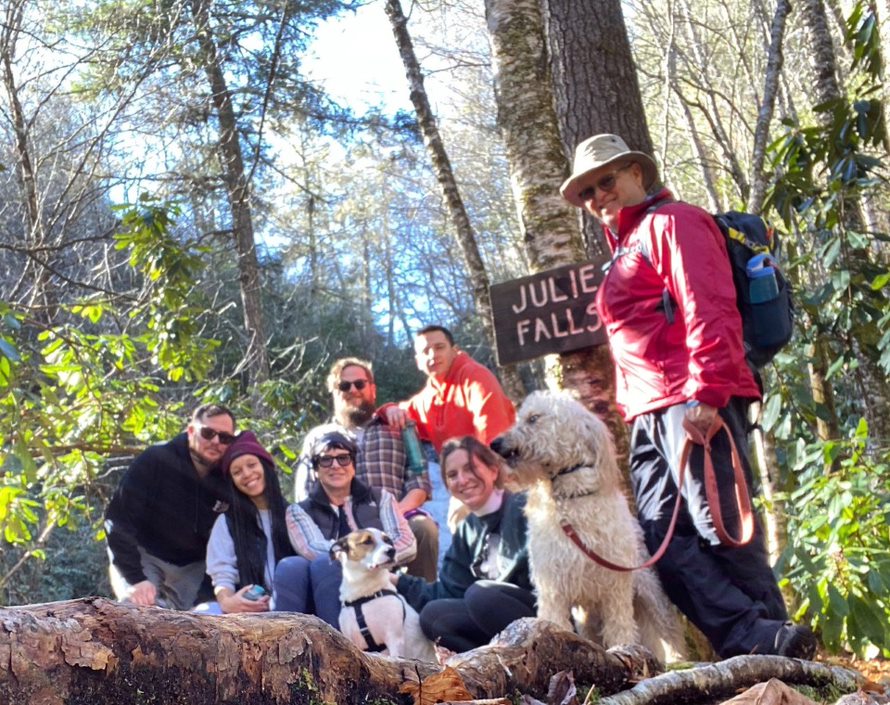
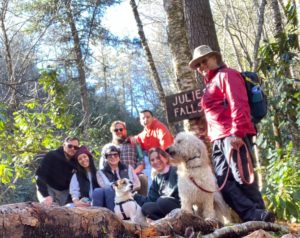 Though we are empty nesters, Bruce and I still include our four children in decisions about our family’s philanthropy. We continue to talk about how we can make a difference in our Atlanta community and farther afield in ways that are relevant to all of us. Our kids know they were born “on third base,” with many advantages, yet they refuse to close their eyes to injustice and social inequities.
Though we are empty nesters, Bruce and I still include our four children in decisions about our family’s philanthropy. We continue to talk about how we can make a difference in our Atlanta community and farther afield in ways that are relevant to all of us. Our kids know they were born “on third base,” with many advantages, yet they refuse to close their eyes to injustice and social inequities.
 How do LGBTQ+ and allies celebrate gender and sexual diversity in a pandemic, without a parade? This year we still danced, sang, laughed, dressed up, and communed. And we offered a robust calendar of virtual speakers and discussions for Pride.
How do LGBTQ+ and allies celebrate gender and sexual diversity in a pandemic, without a parade? This year we still danced, sang, laughed, dressed up, and communed. And we offered a robust calendar of virtual speakers and discussions for Pride.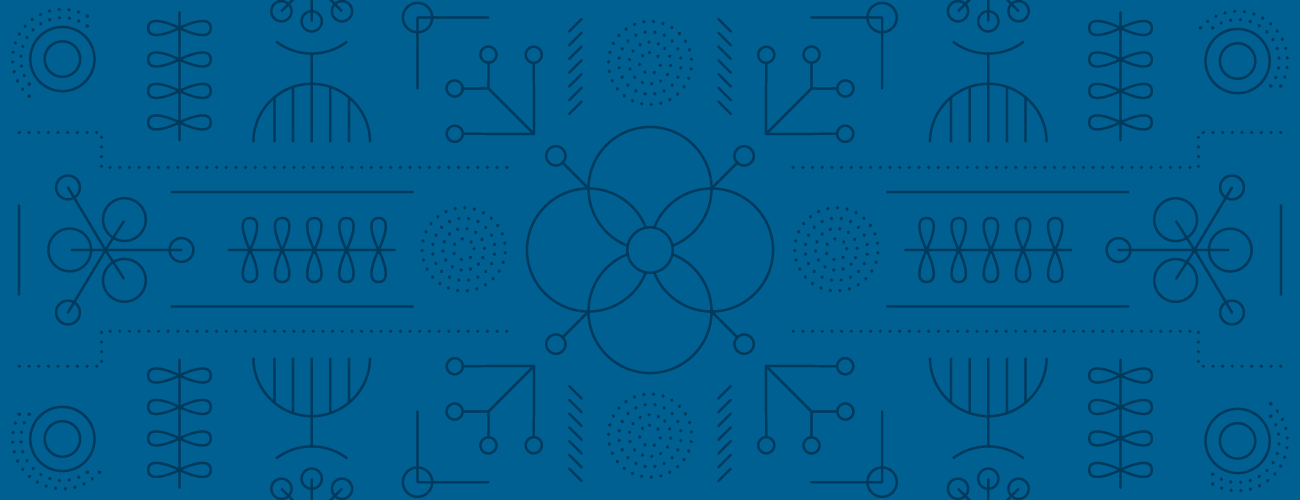
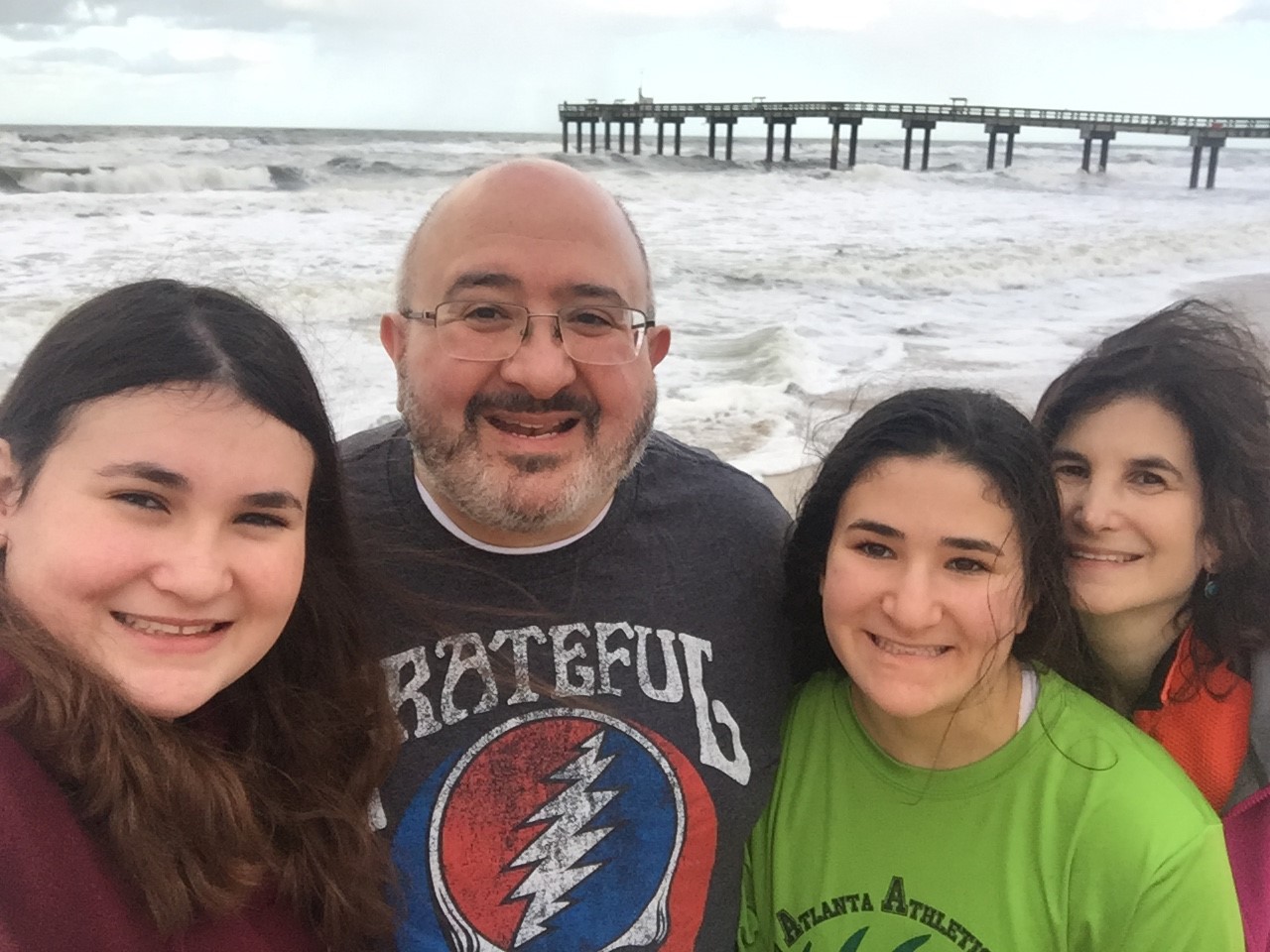
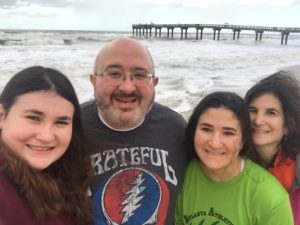
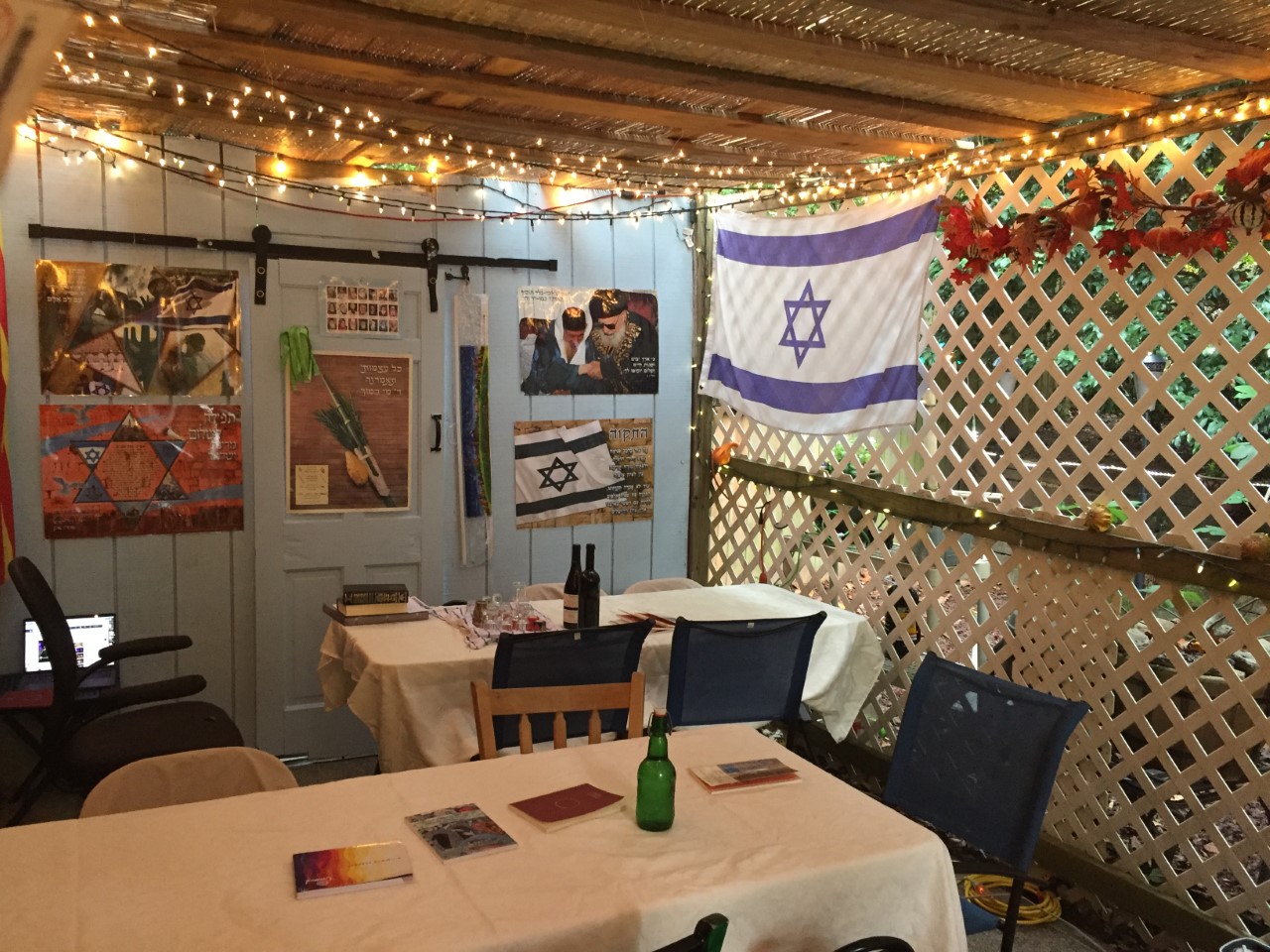
 Sukkot inTime of Distance
Sukkot inTime of Distance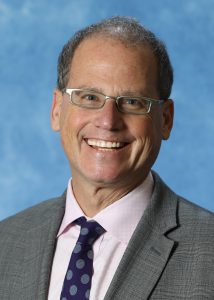
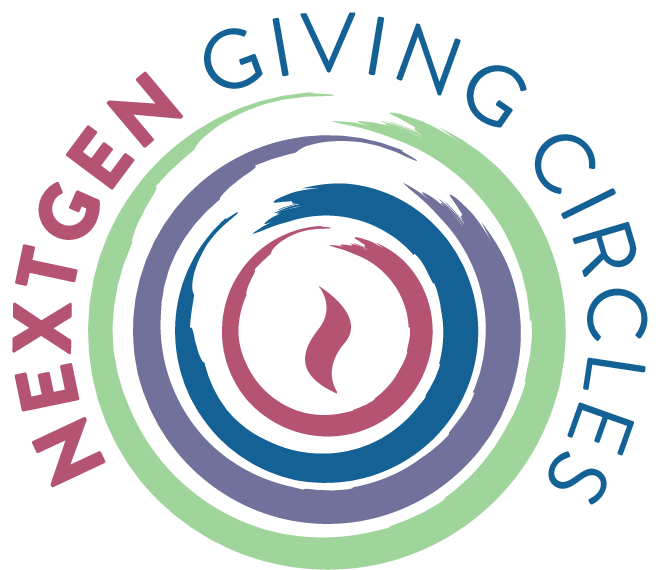


 Chef, writer, and cooking instructor Susan Barocas lives in Washington, DC where she is well known for teaching about Sephardic foodways — and the fact that she served as guest chef for three Passover seders at the White House for the Obamas! Susan is also beloved in Atlanta where she was a presenter at Limmud, cooked with Chef Todd Ginsberg, and spent time visiting Congregation Or Ve Shalom’s legendary boureka makers. We wanted to share her recipe for Tishpishti, a Sephardic honey cake that is perfect for Sukkot, October 3-9.
Chef, writer, and cooking instructor Susan Barocas lives in Washington, DC where she is well known for teaching about Sephardic foodways — and the fact that she served as guest chef for three Passover seders at the White House for the Obamas! Susan is also beloved in Atlanta where she was a presenter at Limmud, cooked with Chef Todd Ginsberg, and spent time visiting Congregation Or Ve Shalom’s legendary boureka makers. We wanted to share her recipe for Tishpishti, a Sephardic honey cake that is perfect for Sukkot, October 3-9.


